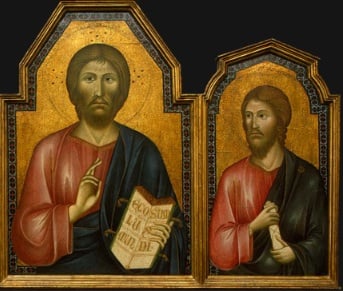 NT Wright’s new book, Justification: God’s Plan & Paul’s Vision
NT Wright’s new book, Justification: God’s Plan & Paul’s Vision
, has a very interesting format (in the American version I’m using — I had an English copy but gave it to my colleague): the first four chps are called “Introduction” and chps 5-8 are called “Exegesis” and have chps on Galatians, Interlude on Phil, Cor, Eph), Romans, and Conclusion. In other words, the debate about the new perspective is not the critical thing; the critical issue is how to read Paul!
Before I say another word: a huge, huge word of thanks to RJS for looking after this blog while we were in South Africa. RJS has made this blog a better space for all of us. Thanks RJS.
Now to NT Wright and Galatians…
If Tom Wright has a challenge to sum up Galatians in a few pages, I have a similar challenge: to sum up his chp in a few words. I highlight.
Wright has a suggestive idea for Galatians 2:11-21. What does justification mean in this context? (The text is at the bottom.) Here’s Wright’s observation:
First, it does not mean to be granted free forgiveness of your sins or to come into right relation with God… but, second, rather “to be reckoned by God to be a true member of his family, and hence with the right to share table fellowship” (116). The point is to be in the family of God and it has to do with the coming together of Jews and Gentiles. Notice how the terms of this passage shift when the table fellowship is given importance here.
What does “works of the law” mean? It means to live like a Jew and separating Jews from Gentiles (cf. 2:14, 15). They are not here about the moral good works that humans intent on proving themselves before God seem to like (in the Reformed tradition). Works of the law here connect to not eating with Gentiles.
And we are justified by “the faith of Jesus Christ” — is this faith in Christ or Jesus’ own faith? Justification then is triggered by the obedience/faithfulness of Jesus Christ. And Christians believe in this Messiah. The law never could promote justification … it reveals sin.
Point of emphasis: 2:16-21 is the Jewish experience with salvation and table fellowship in Christ through the lens of Peter’s and Paul’s life. The “I” of these verses — “I am crucified with Christ” — is the Jewish “I.”
11 When Peter came to Antioch, I opposed him to his face, because he was clearly in the wrong. 12Before
certain men came from James, he used to eat with the Gentiles. But when
they arrived, he began to draw back and separate himself from the
Gentiles because he was afraid of those who belonged to the
circumcision group. 13The other Jews joined him in his hypocrisy, so that by their hypocrisy even Barnabas was led astray.14When
I saw that they were not acting in line with the truth of the gospel, I
said to Peter in front of them all, “You are a Jew, yet you live like a
Gentile and not like a Jew. How is it, then, that you force Gentiles to
follow Jewish customs?15“We who are Jews by birth and not ‘Gentile sinners’ 16know
that a man is not justified by observing the law, but by faith in Jesus
Christ. So we, too, have put our faith in Christ Jesus that we may be
justified by faith in Christ and not by observing the law, because by
observing the law no one will be justified.17“If,
while we seek to be justified in Christ, it becomes evident that we
ourselves are sinners, does that mean that Christ promotes sin?
Absolutely not! 18If I rebuild what I destroyed, I prove that I am a lawbreaker. 19For through the law I died to the law so that I might live for God. 20I
have been crucified with Christ and I no longer live, but Christ lives
in me. The life I live in the body, I live by faith in the Son of God,
who loved me and gave himself for me. 21I do not set aside the grace of God, for if righteousness could be gained through the law, Christ died for nothing!”

